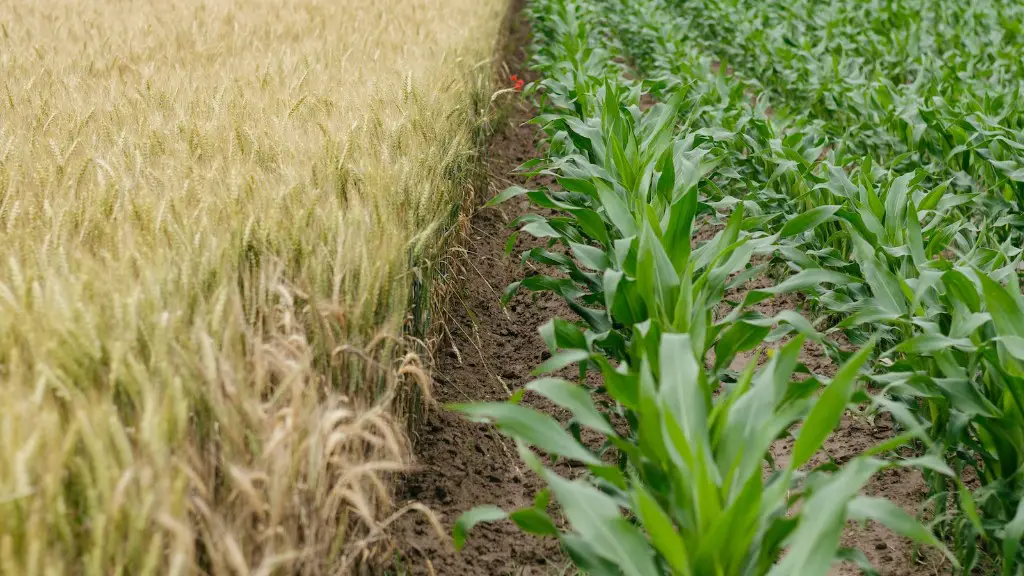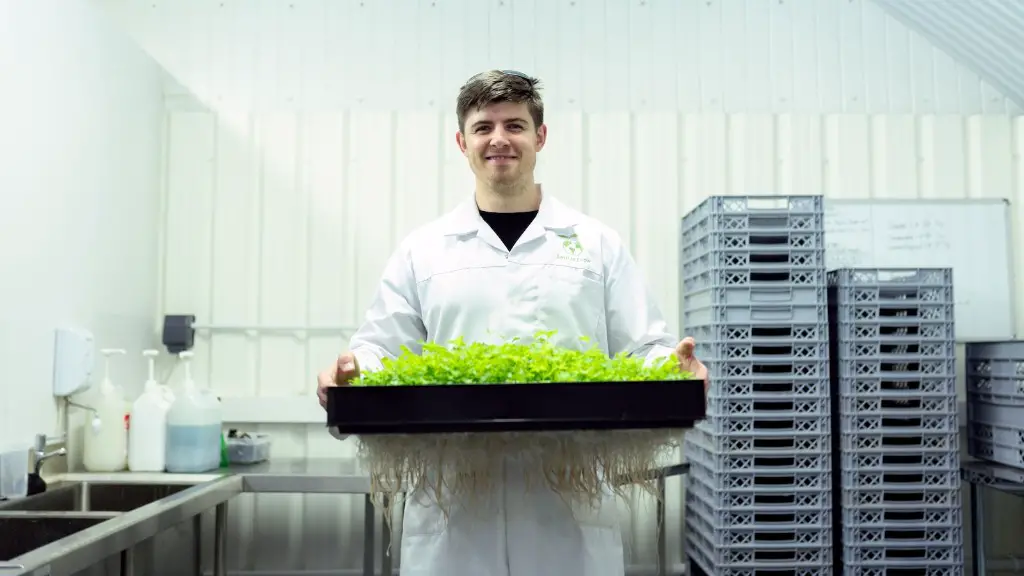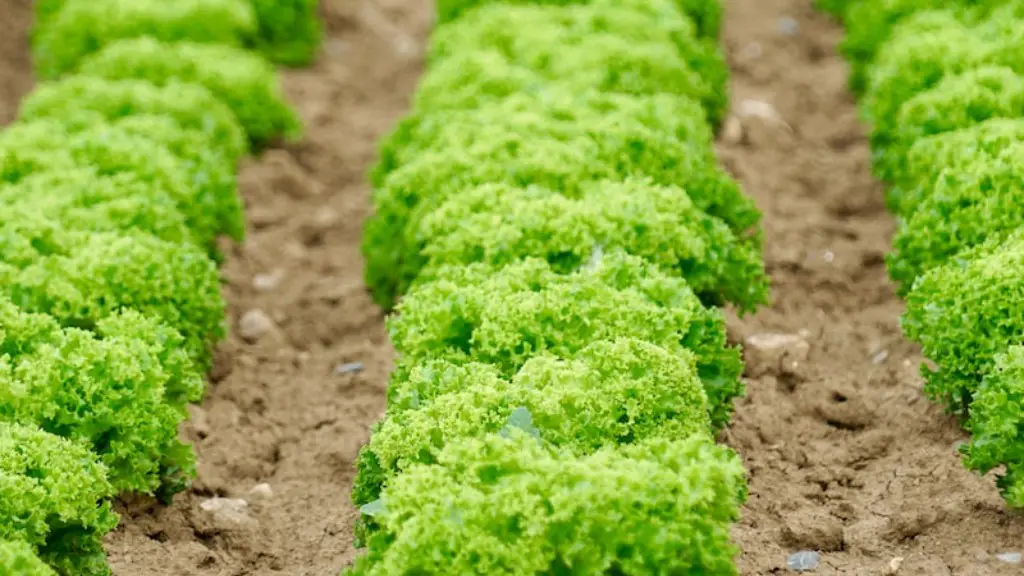Agriculture accounts for a broad range of jobs that involve the production of food, plants, and livestock. It is a field of science, economics, sociology, and engineering that has the objective of managing and measuring the most efficient use of land, water, and resources. It is a major source of employment, income, and economic growth. The jobs that are considered part of the agricultural industry can include farmwork, horticulture, dairy, livestock, agroforestry, forestry, and agricultural engineering among others.
Farmwork is the most common job within agriculture. It involves caring for the crops and livestock. This includes planting, harvesting, managing pest populations, and more. This type of work requires knowledge of soil conditions, planting and harvesting cycles, and animal care. Those who work in this field will have to know how to use the right equipment, comply with food safety regulations, and be knowledgeable about the products they are selling to customers.
Horticulture is another type of job in the agricultural industry. It involves working with all types of plants, from creating landscaping designs to managing nurseries and greenhouses. Field horticulturists usually cultivate decorative flowers, fruits and vegetables, medicinal and medicinal plants, ornamental trees, and turfgrass. Those who work in horticulture must be able to identify plant species, including weeds and pests, and properly prepare and use different soil types.
Dairy is another job category within the agricultural industry. This type of work involves caring for animals for the purpose of producing milk, cheese, and other dairy products. Dairy farm workers take care of milking cows, checking for disease, and ensuring the health and wellbeing of the animals. They must also be knowledgeable about the equipment used in dairy production and the necessary safety procedures when handling animals and equipment.
Livestock owners, caretakers, and handlers are also important figures within the agricultural industry. These individuals are responsible for taking care of animals, such as sheep, goats, pigs, horses, and chickens. They must be equip to handle veterinary needs, breeding practices, and maintenance of the facilities. Livestock owners and caretakers must also know the laws related to animal ownership and must be familiar with the food safety regulations of the state where they reside.
Agroforestry, another job in the agricultural industry, is growing crops and trees together in one area. This system of production has ecological and economic advantages, as it can increase soil fertility, water-holding capacity, biodiversity, and productivity of the land. Those who work in this field must be knowledgeable about soil science, conservation, forestry, and horticulture.
Lastly, agricultural engineering is a field related to agriculture that involve the design and construction of agricultural equipment and facilities. Those who work in this field must have knowledge of engineering and be able to use computers and other technological tools. They must also be able to develop strategies to increase efficiency within the agricultural system and must understand the relationship between the technology and the environment.
Farmwork
Farmworkers are an integral part of agriculture. They play a key role in ensuring crops are grown, harvested, stored and sold. They must possess knowledge of soil preparation, planting, harvesting, pest management, and other essential skillset. To be successful, they must be well-acquainted with modern farming practices and equipment. Additionally, they must understand food safety regulations and the different types of products in the market.
In particular, farm work can involve caring for animals, such as cows, sheep, goats and other livestock. Farmworkers must be able to identify animal diseases and control the spread of diseases. Furthermore, they must understand proper animal care and husbandry, nutrition and be able to use specialized equipment. They also need to comply with animal welfare regulations.
Farm workers must be knowledgeable of the laws and regulations pertaining to the sale and distribution of food products. They need to ensure the proper management of land and water resources and must also ensure that the crops are in conformity to the standards laid out by the government or proper authorities. Additionally, they must be able to identify potential problems with their crops and address them promptly.
Lastly, farm work is physically and mentally demanding. Workers must be able to work in all weather conditions, with the potential of long hours and the occasional heavy lifting. They must have a strong sense of responsibility, a positive attitude and be able to take direction from their supervisors.
Horticulture
Horticulture is another important branch of agriculture and involves the cultivation of plants for various purposes. Specialists in this field must possess an in-depth knowledge of plants, their habitats and their needs. They must have extensive knowledge of the climate, local soil types and its suitability for different crops.
In addition, horticulturists must be well-versed in irrigation and pest control methods. They also need to know the different classifications of plants, their uses, and how to propagate and care for them. Moreover, they should have a strong understanding of landscape architecture, in order to design aesthetically pleasing settings.
Excellent communication and interpersonal skills are essential to be successful in this profession. Horticulturists must be able to work in teams, providing support and guidance to their colleagues. They must also be able to work with clients, explaining various options, and giving advice on the best choices for their needs.
Furthermore, horticulturists must be knowledgeable about agricultural methods and techniques, soil management, and how to identify pests and weeds. They must understand the principles of plant breeding and be familiar with the laws and regulations concerning the sale and distribution of plants.
Finally, horticulturists must be able to carry out maintenance and repairs of greenhouse and nursery facilities. They should also possess effective problem-solving skills to be able to handle sudden changes in working conditions.
Dairy
Dairy farming is an essential component of the agricultural economy. Dairy farmers must be knowledgeable about the operations of a dairy farm and the needs of their cows and other livestock. They need to be skilled at milking cows, managing lactations, and identifying diseases.
Those working in dairy farming must understand the principles of animal nutrition and the importance of good animal husbandry. They must be able to use specialized dairy equipment and have an understanding of the processes of obtaining, manufacturing, and distributing dairy products.
Dairy farmers must understand the laws and regulations related to the production of dairy, such as safety and food safety regulations. They must also understand the importance of water conservation, waste management, and sustainability practices.
Moreover, dairy farmers must be knowledgeable about the market and understand the effects of supply and demand, pricing policies, and fluctuating milk prices. They must also be familiar with packaging and branding and have a good understanding of marketing, sales, and customer service.
Finally, dairy farmers must be skilled in managing records and financial accounts. They must have knowledge of the business and operational aspects of dairy farming and must be aware of the impact of global economic trends and political conditions on the dairy industry.
Livestock Owners and Caretakers
Livestock owners and caretakers must have an understanding of animal care and husbandry. This involves providing proper nutrition, vaccinations, and providing a comfortable and secure environment for the animals. They must possess knowledge of the laws and regulations regarding proper animal care and be knowledgeable about the different types of livestock.
They must be able to use the necessary farming equipment, such as tractors and feeders. They must also have knowledge of animal health and the prevention of disease. Livestock owners and caretakers must also be knowledgeable about the different animal feeds, their nutritional merits and their suitability in different situations.
Livestock owners and caretakers must understand the laws pertaining to the sale of livestock and other agricultural products and must be familiar with the food safety regulations. They should also be aware of the ethical treatment of animals and have good communication skills to be able to collaborate with other members of the agricultural industry.
Furthermore, they must have knowledge of animal breeding and reproduction, as well as how to identify and control the spread of diseases. They must be well versed in the physical and mental needs of animals and must be prepared to handle veterinary emergencies.
Lastly, livestock owners and caretakers must possess problem-solving skills to be able to identify and overcome any potential issues that may arise. They must also possess excellent organizational skills to be able to keep track of their activities and ensure a smooth and successful operation.
Agroforestry
Agroforestry is an important area of agriculture that combines the practices of forestry and agriculture. In agroforestry, trees and crops are grown together, allowing the land to be used more efficiently and sustainably. Those working in agroforestry must have an understanding of both forestry and agriculture and be knowledgeable about soil science and conservation.
Agroforestry workers must understand the soil conditions that are suitable for different tree and crop species, as well as their fertilization and irrigation needs. They must be familiar with the different pest and weed management strategies, as well as how to control the spread of disease.
In addition, they must be knowledgeable about the laws and regulations of the local area, as well as the laws and regulations pertaining to the sale and distribution of tree and crop products. They must also understand the principles of sustainable forestry and be aware of the environmental impacts of agroforestry.
Agroforestry workers need to have excellent communication skills in order to be able to effectively collaborate with colleagues, supervisors, and external partners. They must also be knowledgeable in the use of the latest technologies and tools, such as Geographic Information Systems (GIS), in order to help them in their work.
Finally, agroforestry workers must possess good management skills in order to be able to keep track of their production, inventory, and finances. They must be well organized and able to adjust their operations to respond to changes in market conditions.
Agricultural Engineering
Agricultural engineering is a field that combines the principles of engineering and agriculture. Those working in this field must understand the principles of engineering and be knowledgeable about agricultural and biological processes. They must be familiar with different types of machinery and equipment used in agriculture and must understand the principles of power transmission.
Agricultural engineers must also be knowledgeable in the use of computer tools and technologies, as well as in different operating systems and software. They must be able to analyze and interpret data to identify inefficiencies in the production process.
In addition, they must understand the different regulations concerning the sale, distribution, and storage of agricultural products, and be familiar with the national and international agricultural standards. They must also have the ability to evaluate environmental impacts, in order to reduce the environmental footprint of the agricultural process.
Agricultural engineers must possess problem-solving skills to be able to address any issues that may arise in their work. They should also be able to work in teams and accept constructive criticism.
Finally, agricultural engineers must be creative and innovative in order to be able to develop new production systems and technologies. They should also possess excellent communication skills, to be able to explain their ideas, strategies, and plans to their colleagues and supervisors.





